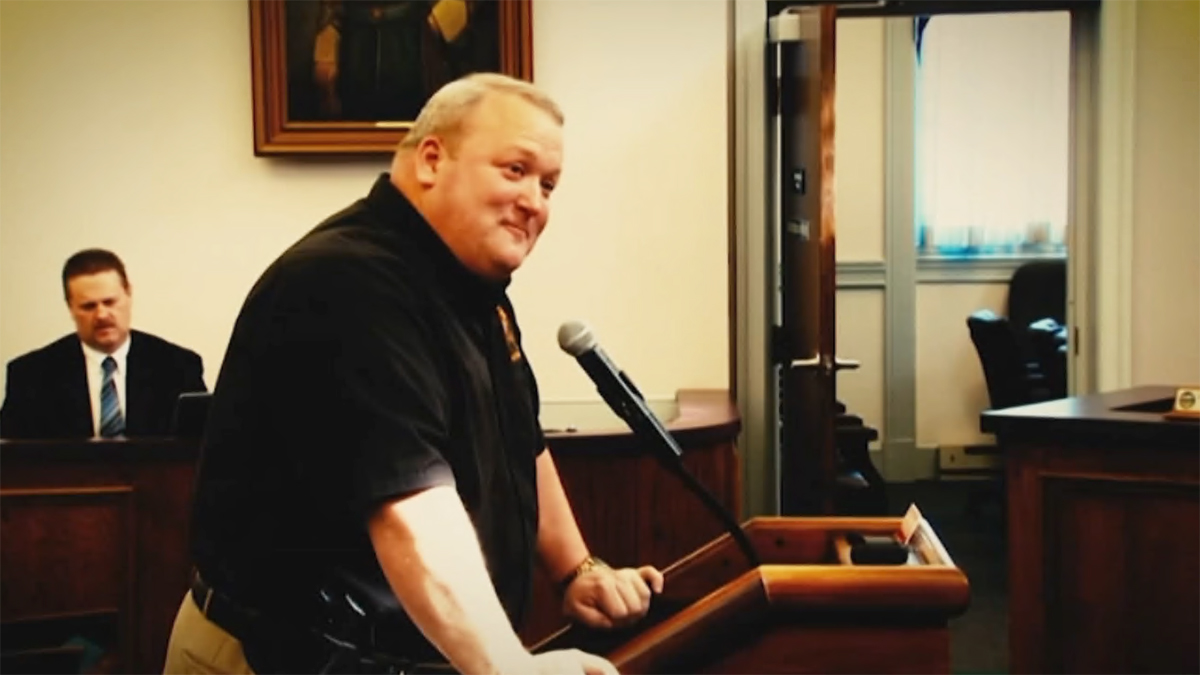Former Culpeper County Sheriff Scott Jenkins’ trial on federal bribery, fraud and conspiracy charges was postponed Thursday until mid-December after the judge said Jenkins suffered panic attacks.
Prosecutors had asked if the defense was trying to delay the trial, which Jenkins’ attorneys denied.
Jenkins’ trial in Charlottesville had been scheduled to begin Tuesday. It was delayed two days in a row after his attorneys said he had a medical condition that landed him at an emergency room.
Jenkins is accused in a federal indictment of accepting more than $70,000 in bribes from people he allegedly made auxiliary deputies, claiming their badges would allow them to carry concealed weapons in all 50 states. He pleaded not guilty and his defense will have the chance to try to prove it.
We've got the news you need to know to start your day. Sign up for the First & 4Most morning newsletter — delivered to your inbox daily. >Sign up here.
The question Thursday, when jury selection was set to begin, was whether Jenkins would show up.
On what was supposed to be the third day of his trial, Jenkins emerged from an SUV, walked slowly and said nothing in response to the News4 I-Team’s questions about how he was feeling and what he wants the jury to know.
In court, Jenkins’ attorneys said the former sheriff had been back at a hospital overnight because of high blood pressure and dizziness. They said he hadn’t slept and ER doctors hold him to take his blood pressure medication and Advil.
His attorneys again asked the judge for a delay in the case.
The judge said from the bench there was nothing in the record that met the legal standard for a trial delay, with any threat to Jenkins’ life or health. However, he delayed the trial out of concern any additional panic attacks might disrupt the trial after a jury was seated.
In court, News4 learned that during Jenkins’ ER visit Wednesday, he only made it to the hospital parking lot, where he monitored his blood pressure. He headed home when it dropped, without ever going inside.
Jenkins lost consciousness Wednesday night and his blood pressure was at “critical levels,” a defense attorney said Thursday morning in a letter to the judge.
“We are concerned that because Mr. Jenkins has not slept all night, he is not going to be able to effectively participate in jury selection and/or is going to either fall asleep or have another incident in front of the jury, which would be to his prejudice,” the lawyer wrote.
Over the repeated objections of federal prosecutors, who worked with nearly two dozen witnesses to prepare for trial, the judge granted a delay until Dec. 11, meaning jurors could be deliberating just days before Christmas.
In the meantime, Jenkins’ doctor is expected in court in the coming days. The judge wants to hear the doctor explain Jenkins’ health condition. The judge asked from the bench if Jenkins needs to be put in a jail medical unit prior to trial to monitor his condition and make sure he shows up ready to proceed.
As he left court with the delay his lawyers sought, Jenkins was quiet as he got back into an SUV.



